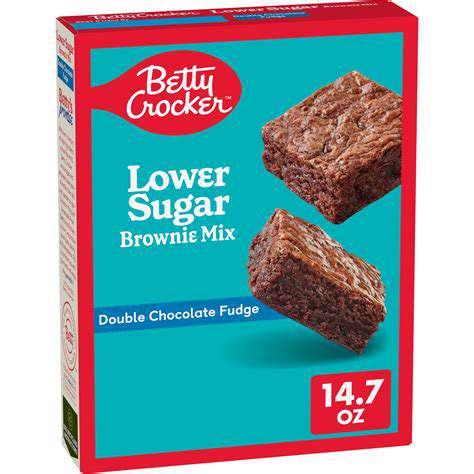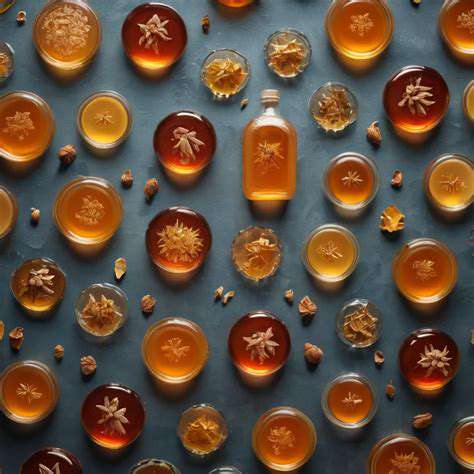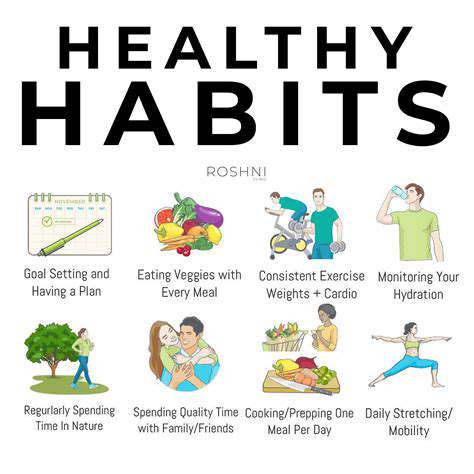Low Sugar Baked Goods for Diabetics: Smart Choices
Jul 26, 2025 / btwgardenmachine/

Sweet Treats Without the Sugar Shock
Many people crave the deliciousness of sweets but are concerned about the impact of added sugar on their health. Fortunately, there are now numerous ways to enjoy sweet treats without the detrimental effects of high sugar content. This approach allows you to satisfy your sweet tooth while prioritizing your well-being.
Natural Sweeteners: A Healthy Alternative
Exploring natural sweeteners is key to enjoying sweet treats without the sugar shock. Honey, maple syrup, and dates are just a few examples of natural sweeteners that offer a touch of sweetness without the same level of processing and potential health issues as refined sugar. These natural options often contain essential nutrients that refined sugar lacks. They also tend to have a richer, more complex flavor profile.
Fruit-Forward Delights
Fruits are nature's candy! A simple fruit salad or a fruit-based crumble can be incredibly satisfying and packed with vitamins, minerals, and fiber. Fresh fruit offers a naturally sweet and refreshing experience without the added sugars or artificial ingredients. Using fruit as a base for desserts is a delicious way to incorporate more natural sweetness and nutrients into your diet.
Spice Up Your Sweets
Spice blends can transform ordinary treats into extraordinary experiences. Cinnamon, nutmeg, and cardamom, for instance, can add warmth and depth to baked goods, smoothies, or even yogurt parfaits, creating satisfying and flavorful desserts without relying on sugar. These spices not only enhance flavor but also offer potential health benefits.
Healthy Baking Alternatives
Many recipes can be adapted to use healthy alternatives to refined sugar. Consider using applesauce, mashed banana, or pureed pumpkin as substitutes for some or all of the sugar in your favorite recipes. These natural ingredients provide moisture and sweetness, resulting in delicious treats that are lower in sugar and higher in nutrients. Experimentation with these alternatives can lead to surprising and healthy results.
Creative Dessert Concepts
Think outside the box! Explore inventive desserts that don't rely on sugar as the primary sweetener. Consider using honey-sweetened yogurt parfaits, fruit-based cobblers, or even creative fruit-infused smoothies. These innovative approaches can make enjoying sweet treats a healthier and more rewarding experience. You can create a wide variety of delicious and exciting treats without sugar.
Mindful Consumption: The Importance of Moderation
Even with healthy alternatives, moderation is key. While these options are better than refined sugar, overindulgence can still have adverse effects. Focus on mindful consumption and portion control to enjoy the sweetness without compromising your overall health goals. Listen to your body and savor the treats without feeling guilty.
Exploring Sugar Alternatives: Beyond the Usual Suspects

Exploring the Healthier Side of Sweeteners
Sugar, while a ubiquitous and delicious addition to many foods, can contribute to a variety of health issues, including weight gain, tooth decay, and insulin resistance. Understanding the potential risks associated with sugar consumption is crucial for making informed dietary choices. This exploration of sugar alternatives delves into the various options available, focusing on their respective health implications and potential benefits.
Beyond Sugar: Unveiling Natural Sweeteners
Natural sweeteners, such as honey, maple syrup, and agave, offer a slightly different experience compared to refined sugar. While these options often boast a more nuanced flavor profile, it's important to remember that they are still calorie-dense and may contribute to weight gain if consumed in excess. Careful portion control is essential when incorporating natural sweeteners into your diet.
Artificial Sweeteners: A Complex Picture
Artificial sweeteners, often marketed as sugar-free alternatives, have become increasingly popular for those seeking to reduce their sugar intake. However, the long-term health effects of these substitutes are still being investigated, with some studies suggesting potential links to metabolic issues. Consumers should approach artificial sweeteners with caution and prioritize whole foods and natural sweeteners whenever possible.
Stevia: A Natural Zero-Calorie Sweetener
Stevia, a natural sweetener derived from the stevia plant, is a popular zero-calorie alternative to sugar. Its intense sweetness allows for significant reductions in sugar consumption without sacrificing flavor. However, some individuals may experience digestive discomfort or other side effects when consuming large amounts of stevia. It's crucial to start with small amounts and gradually adjust the dosage as needed.
Monk Fruit: A Unique and Versatile Sweetener
Monk fruit, another natural zero-calorie sweetener, offers a unique and versatile option for those seeking sugar alternatives. Often lauded for its clean taste and lack of aftertaste, it can be used in baking, beverages, and various other culinary applications. Monk fruit is generally well-tolerated, but, as with any new dietary addition, it's wise to start slowly and monitor your body's response.
The Importance of Moderation and Informed Choices
Regardless of the specific sugar alternative you choose, moderation is key. Excessive consumption of any sweetener, even natural ones, can have negative consequences. Focus on incorporating a balanced diet rich in whole foods, fruits, and vegetables. Prioritize mindful eating and listen to your body's signals for optimal health outcomes.
